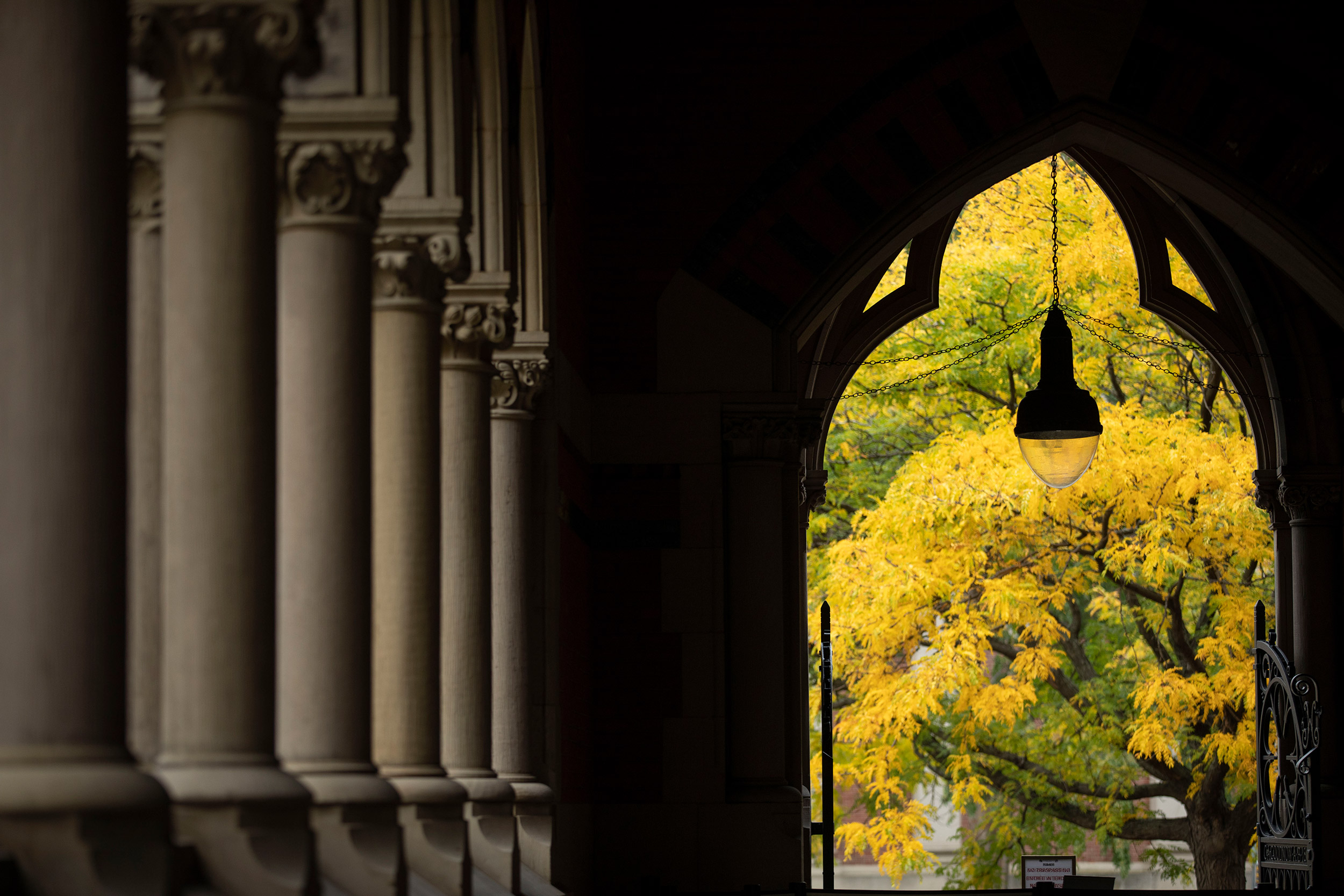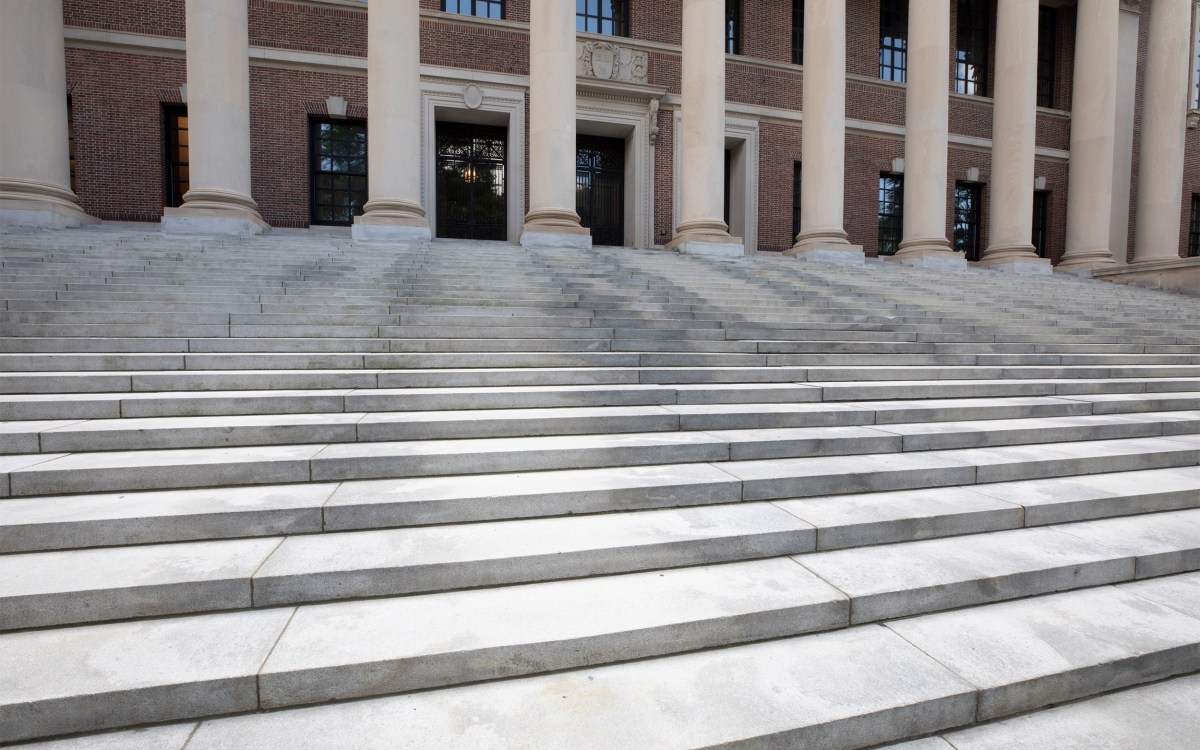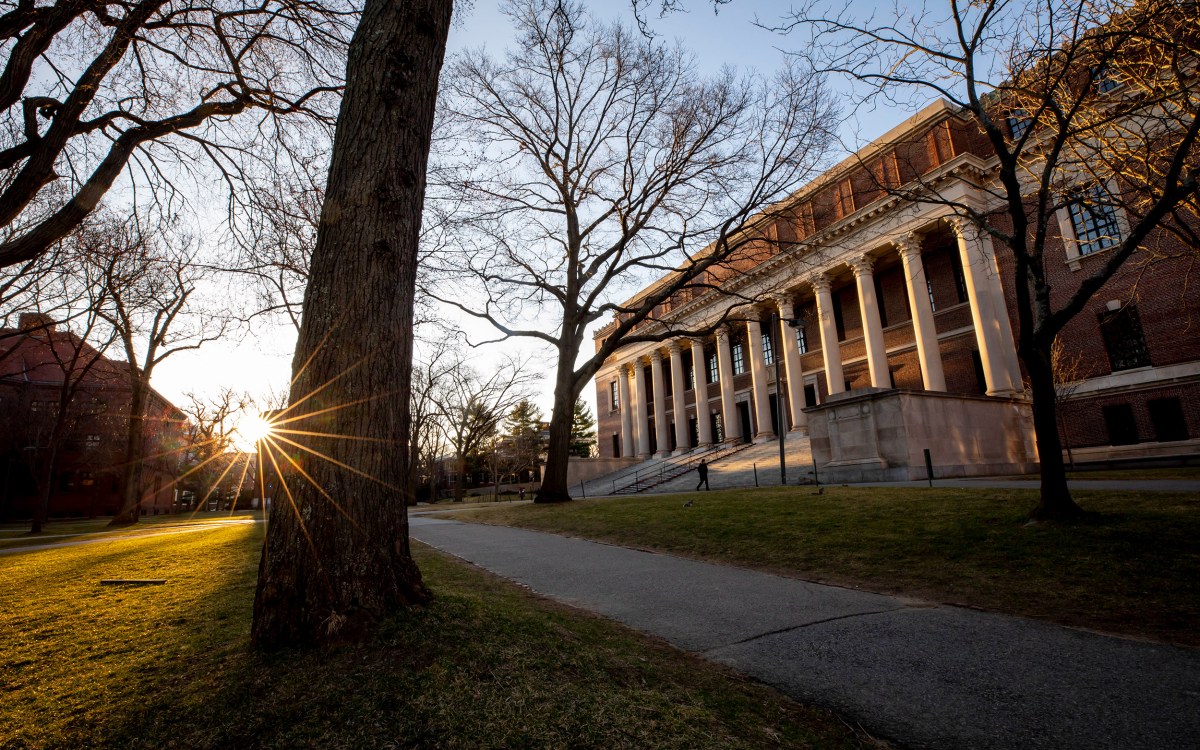
Autumn in Harvard Yard.
Kris Snibbe/Harvard Staff Photographer
Appeals court finds for Harvard in admissions case
Two-judge panel upholds lower court ruling that University complies with Supreme Court precedent
The First Circuit Court of Appeals on Thursday affirmed Harvard’s use of race as one factor among many in its application process. The decision, issued by a two-judge panel in Boston, upheld a district court finding last year that the College’s admission practices do not discriminate against Asian American applicants and comply with prior Supreme Court rulings.
“After careful review of the record, we hold … that under governing Supreme Court law Harvard’s race-conscious admissions program does not violate Title VI of the Civil Rights Act,” read part of the 104-page ruling that refuted discrimination claims by the plaintiff, Students for Fair Admissions (SFFA), a group founded by Edward Blum, who has spent decades fighting measures designed to foster diversity in higher education and elsewhere.
Harvard President Larry Bacow called the decision another victory for Harvard’s mission of educating students from all backgrounds and experiences, and a recognition of the importance of diversity more broadly.
“Just over a year ago, U.S. District Judge Allison Burroughs found in Harvard’s favor. Today, her decision — and the values that underlie our undergraduate admissions process — are affirmed,” said Bacow. “The consideration of race, alongside many other factors, helps us achieve our goal of creating a student body that enriches the education of every student. Diversity also represents a pathway for excellence for both Harvard and the nation.”
The Boston appeals court panel affirmed Burroughs’s opinion, noting that Harvard’s admissions practices are “narrowly tailored,” and that the University does not engage in racial balancing, use race as a “mechanical plus factor,” or overlook other workable race-neutral alternatives to achieve a diverse student body. In their ruling, Chief Judge Jeffrey Howard and Judge Sandra Lynch wrote that SFFA’s claim that “Harvard elevates racial diversity above other types of diversity is not supported by the evidence,” and that by eliminating consideration of race in admissions, “the share of African American and Hispanic or other students enrolled at Harvard would decrease by 45 percent.” (Judge Juan Torruella of the appellate panel, who participated in the September hearing, died on Oct. 26.)
Harvard co-lead counsel Seth Waxman ’73 said the appellate decision came at a crucial time for the country.
“Now more than ever, the importance of diversity in higher education cannot be overstated. The First Circuit’s decision today confirms what we have always known to be true, and what the district court found after a three-week trial,” said Waxman. “Harvard does not unlawfully discriminate on the basis of race, and its admissions process is consistent with decades of Supreme Court precedent.”
Blum, who also is spearheading similar litigation against the University of Texas and the University of North Carolina, Chapel Hill, said that while he was disappointed with Thursday’s ruling, he is determined to fight on. He said the lawsuit “is now on track to go up to the U.S. Supreme Court.”
Support for the ruling came from the higher education sector and beyond.
“Alumni know that the diversity of our fellow students was a huge contributor to what we learned at Harvard. In this time of such inequity and crisis, it is even more critical that students engage with a diverse range of backgrounds, experiences, and perspectives,” said Jeannie Park ’83, president of the Harvard Asian American Alumni Alliance and co-founding board member of the Coalition for a Diverse Harvard, groups that joined amicus briefs supporting the University, and whose combined 7,000 members represent every Harvard School. “It is gratifying that the court upheld Harvard’s ability to consider race as one of many factors in building a diverse campus, so that applicants can put forward their whole selves and be considered fully.”
Kristen Clarke, president and executive director of the Lawyers’ Committee for Civil Rights Under Law, which also submitted an amicus brief supporting Harvard, said the court has made it clear that Harvard’s admissions policies are “critical for promoting diversity, which enriches the educational environment for all students and better prepares students to thrive in an increasingly multi-ethnic society.”
“Justice has prevailed once again,” said John C. Yang, president and executive director of Asian Americans Advancing Justice – AAJC which also supported Harvard with an amicus filing. “The court’s decision affirms the right for all Asian Americans to have a chance to share the whole story of who they are as part of the college admissions process because overcoming racial discrimination is a big part of a student’s story.”
In an online statement, Ted Mitchell, president of the American Council on Education, called the decision “a clear win for Harvard University.”
The ruling, he wrote, “is just the latest federal court decision that unambiguously respects more than four decades of U.S. Supreme Court precedent that race and ethnicity can be considered within a narrowly tailored framework as one factor in a holistic admissions review to help colleges and universities achieve the goal of a talented, diverse incoming class. We applaud in the strongest terms this ruling by the First Circuit Court of Appeals and are confident that if and when this case goes to the Supreme Court, the justices will continue to uphold the vital principle that student body diversity is a compelling governmental interest.”







